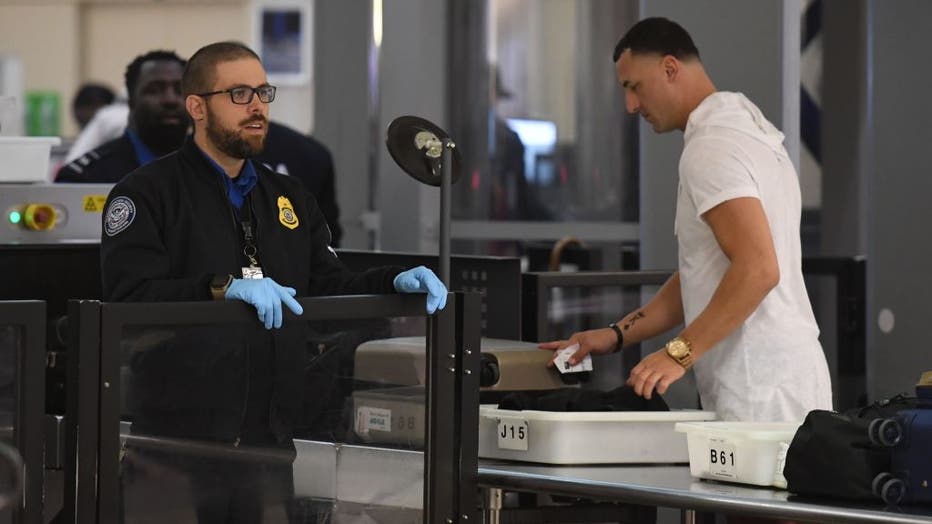How 9/11 transformed air travel: TSA, security measures, and fees explained
The September 11th tragedy undoubtedly reshaped the airline industry. Younger generations haven’t a clue about what air travel was like before the hijackings that killed nearly 3,000 people in the deadliest act of terrorism on American soil.
Even older generations may be unaware of changes, such as the history of the Transportation Security Administration and the extra fee placed on airline tickets.
Here’s how air travel was redefined in the wake of September 11, 2001.
RELATED: 9/11: The little-known story of how a small Canadian town took in thousands of stranded passengers
Security screenings
Security measures evolved with new threats, and so travelers were asked to take off belts and remove some items from bags for scanning. Things that clearly could be wielded as weapons, like the box-cutters used by the 9/11 hijackers, were banned.

Transportation Security Administration officers (TSA) stand screen passengers at the departure area of the Los Angeles International Airport in Los Angeles, California, on 5 January, 2019.(Photo credit should read MARK RALSTON/AFP via Getty Images)
The start of the TSA, Transportation Security Administration
Two months after the attacks, former president George W. Bush signed legislation creating the Transportation Security Administration, a force of federal airport screeners that replaced the private companies that airlines were hiring to handle security.
The law required that all checked bags be screened, cockpit doors be reinforced, and more federal air marshals be put on flights.
The TSA is under the Department of Homeland Security, which was also created in the wake of 9/11. It was compiled from 22 federal agencies or departments whose responsibilities ranged from Border Patrol agents on horseback to Federal Emergency Management Agency personnel inspecting damaged homes after hurricanes to Coast Guard personnel teaching boaters about marine safety.
What is the September 11th fee?
When you buy an airline ticket, you may notice the Passenger Fee, or September 11 Security Fee,
RELATED: 9/11 plotters reach plea deal over 20 years after the deadliest terrorist attack on U.S. soil
The money helps fund TSA. The fee is currently $5.60 per one-way trip in air transportation that originates at an airport in the U.S., except that the fee imposed per round trip shall not exceed $11.20, according to the TSA website.
Only travelers can pass through security, with some exceptions
Before 9/11, it was customary for friends and family to walk their loved ones to the actual gate before they boarded the plane. It was also customary for them to wait at the gate when their loved ones arrived.
With all the new security measures, only ticket holders are able to pass through security and head to the gate. There are exceptions with minors who are flying unaccompanied.
Some airports are allowing non-travelers to pass through security at certain times during the day, though many have since discontinued the program amid the COVID-19 pandemic.
RELATED: Toby Keith: The story behind country singer's hit 'Courtesy of the Red, White and Blue'
Philadelphia International Airport has the Wingmate Pass, which is a free amenity that gives non-ticketed guests access to the secure side of the airport. With the pass, people accompanying travelers will get to meet them at their gate.
Terminal C at Orlando International Airport is open to the public – and you don't even need a boarding pass to access all the new amenities. Approved guests can enter Terminal C with a visitor pass program that lets non-flyers say goodbye to loved ones, grab a bite or stroll through gift shops, according to a press release from MCO.

